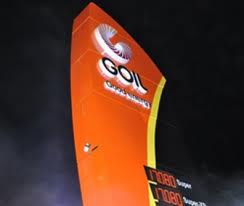Mr. Patrick Akorli, the Managing Director of Ghana Oil Company Limited (GOIL), says oil bunkering services are not dying but are rather on the ascendency.
Reacting in an interview to complaints by some players that bunkering services -- the supply of fuel to ships -- have been on the decline because of poor supplies, he said that cannot be true and challenged anyone to provide data to prove the alleged decline.
GOIL, he said, is ready to partner any private bunkering company that is willing to invest in the operations of Ghana Bunkering Services (GBS), of which the company and Total are shareholders with 51.5 percent and 48.5 percent stakes respectively.
“Since 2004, when the two companies acquired majority shares in GBS, we have gained extensive experience in the bunkering market -- and GOIL is running a premier bunkering operation with a global footprint. We can proudly say that we have bunkering experts in GOIL,” he said, adding: “We are the leader in the local bunker fuel trading industry, providing marine gas oil and marine lubricants to ocean-going vessels.”
He said GOIL, which is the second-largest operator of fuel stations in the country, is investingGH¢10million on marine fuel-storage tanks at Takoradi Port to boost its share of the bunkering market.
GOIL has a storage facility at Tema that can store bunker fuel up to 2.5million litres and is planning to expand the facility to 30 million litres soon, in addition to the proposed Takoradi project.
“We want to increase our market share of the bunkering industry. Opportunities have grown at the port because of the oil-pumping activities in the region,” the MD stated.
He explained that following deregulation of the bunkering market by the National Petroleum Authority (NPA), it has been forced to share its bunkering facility with competitors.
“Ideally, this strategic investment by GOIL and Total which can accommodate five operators has had to contend with 22 licenced companies who didn’t put in a pesewa. It is important to drum home the point that the facility is not a state-owned asset that has been hijacked by GOIL: it was an investment decision to buy the shares of Shell and Mobil, who were pulling out of the business. How do we recoup our initial investments?” he asked.
Aside from that, the Managing Director believes GOIL’s decision to acquire the facility was a breakthrough for local oil-marketing companies (OMCs) -- with high economic benefits for Ghana as the proceeds of the business stay entirely in the country.
“We have left the retail trade in the hands of foreigners, and all that they are doing is to repatriate profits out of the country, which is having a toll on the local currency and leading to instability of prices in the country.”
He added that even though GBS’s door has been open to all oil-marketing companies to use their facility, the rent charges that are fixed by the NPA are not in favour of GOIL and Total -- the owners -- and this is eroding their investment. Currently, the NPA has fixed a throughput fee of 0.08 US cents per litre that GOIL can charge other companies
Business News of Monday, 27 January 2014
Source: B&FT
Oil bunkering not dying

Entertainment















